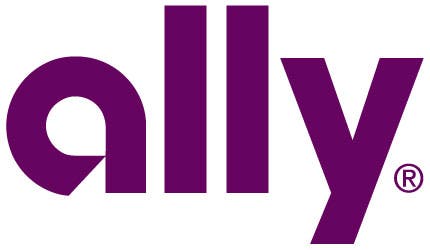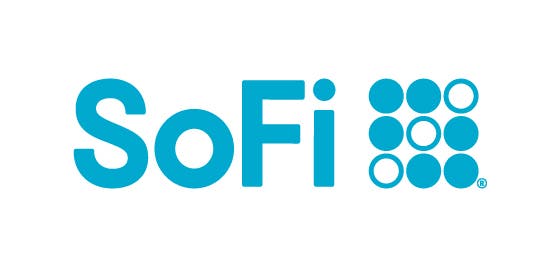Webull review
The Bankrate promise
At Bankrate we strive to help you make smarter financial decisions. While we adhere to strict , this post may contain references to products from our partners. Here's an explanation for .
Webull gives individuals looking for a primarily mobile trading offering a solid brokerage offering that’s more than competitive with its more popular rival Robinhood in several areas. Of course, you’ll get commission-free trading on stocks, ETFs and options, and fractional shares are available for as little as $5. Futures and U.S. Treasurys are also available through Webull. You can also now trade overnight in more than 500 stocks and ETFs five days a week. If you want to trade crypto, you’ll need to use a separate app called Webull Pay, but there’s no direct fee to trade.
Webull offers only a handful of the most common individual account types, so if you’re looking for 529 plans, custodial or self-employed retirement accounts, you’ll need to turn to more established brokers such as Charles Schwab or Fidelity Investments. Both of these brokers also offer thousands of no-transaction fee mutual funds, which aren’t available at all through Webull.
We want to know what you think about Webull
Do you have experience with Webull? Let us know your thoughts.
Overview of Webull

Overview
Webull is a great pick for mobile trading, not only for no commissions on stocks and options but also for its new addition of futures.
- Commission-free trading
- Cryptocurrency trading
- Mobile trading
Pros: Where Webull stands out
Feature-rich mobile app
Webull brings a solid mobile app with a feature set that’s richer than key rival Robinhood’s offering. The app’s overall presentation feels impressive, and you’ll be able to use charting tools to analyze the trading action (more below). Each stock has a comprehensive page that links out to third-party news articles and a company’s press releases, while a comments page shows what Webull members are saying about the stock, so you can get a feel for sentiment there.
The app also offers high-level financials, and you’ll be able to access a detailed look at the order book and order flow distribution. A trade button sits at the bottom of the screen and a quick click pulls up the trading screen where you can input the trade details and go. If you’re trading options, hit the options tab and you’re inundated with options quotes. Click the options strategy and setup you want, and you’re ready to trade.
Finally, you’ll be able to place trades using your voice with the AI-enabled voice feature. It all feels really sci-fi, even if you’ll want to double-check to make sure you’re making the right order.
Free trading and no account minimum
Webull’s top feature might be its ability to trade stocks and ETFs without a commission. Admittedly, that’s nothing out of the ordinary these days, since the whole industry has gone to commission-free trading, but it’s still important to have. You’ll get full extended hours trading and three complimentary months of Nasdaq Level 2 quotes when you sign up.
But Webull does the industry one better, with no-cost options trading. That means no base commission nor a per-contract fee, though it does pass along tiny regulatory fees. That’s about as good as it gets, though Robinhood does pare out even these regulatory costs for clients.
Webull also launched overnight trading for select securities, which means you can trade them in the overnight session from 8 p.m. to 4 a.m., five days a week. So far, the feature is available on more than 500 stocks and ETFs.
Webull makes it easy to get started too, as there’s no account minimum — which is similarly standard for the industry nowadays.
Bankrate staff insight
“Webull is geared for traders looking to use the high-featured mobile app,” says one Bankrate staff member who has an account there. “Webull keeps adding features. No-commission options trades are so nice, futures trading is a recent addition and Webull offers a strong cash account, too, so I feel like I can do a lot here, even just hold cash until I’m ready to invest it.”
Webull markets
Cryptocurrency and futures trading
If you’re looking for another differentiator between Webull and most brokers, crypto is one place, as is the recently introduced ability to trade futures. Webull allows you to trade cryptocurrencies directly, rather than as futures as some of the top brokers require. You won’t pay an explicit commission for this service, but you will pay a spread markup of 100 basis points (i.e. 1 percent of your purchase price) on either side of a trade.
However, Webull recently moved crypto trading to a separate app called Webull Pay in response to the Securities and Exchange Commission suing the largest crypto trading platforms, Binance and Coinbase. Webull says it created Webull Pay to protect the rest of its business from potential litigation.
You’ll be able to trade cryptocurrencies such as Bitcoin, Ethereum, Dogecoin and Shiba Inu with a $1 minimum, and you’ll be able to do so 23 hours a day, seven days a week. You can get price quotes on other cryptos as well, even if you’re not able to trade all of them. In total, Webull offers trading in 30 cryptocurrencies, as of publication.
But Webull is even newer to the futures world, having opened trading there in March 2024. Futures allow traders to purchase interests in a variety of commodities, and it’s a clear differentiator from most brokers, which do not offer the feature at all. The capability really adds some extra gloss to the offering here, even if many or even most clients won’t find it that useful. The broker charges $1 per regular contract, with mini and micro futures at 60 cents and 25 cents, respectively.
U.S. Treasurys
You can trade bonds at Webull now, too. Ok, ok, it’s just U.S. Treasurys for now, though the app plans to add corporate bonds and municipal bonds later on. It’s a new step into an area where financial apps often don’t tread, though rival Public has also made a similar move.
The interesting thing here is that Webull allows fractional bond trading, with a $100 minimum. That’s much easier to swallow than the typical $1,000 price point for bonds. Webull charges 0.1 percent for Treasurys and 0.7 percent for all other fixed income.
Webull Premium
In early 2025 Webull launched Webull Premium, a subscription service that delivers better rates or payments on a variety of services, including the broker's cash account, margin rates, matching funds on IRA transfers and contributions, and pricing on futures. The subscription costs $3.99 per month or $40 per year, and it could well be worth the extra modest cost, if you're using these features.
Competitive cash account
As part of its premium tier, Webull offers high and competitive yields on cash that’s just hanging out in your account, boosting its baseline rate of 0.5 percent to 4.1 percent, as of publication. You won’t need to open a new account, you won’t have to deposit a minimum amount to get the yield on offer and you won’t be subject to fees. Plus, the account is FDIC-insured. So, if cash is just sitting in your account between trades, you can pick up interest on it with no extra effort.
The rates are variable, however, meaning they’ll rise and fall as the Federal Reserve adjusts interest rates. Nevertheless, the yield here is competitive with what’s available at other brokers in their cash accounts, at the time of publication. You’ll need to enroll in the cash management program to get started here.
IRA matching
The subscription also gets you higher bonuses on your contributions and transfers to an IRA. For example, if you make an IRA contribution, you'd normally receive a 1 percent match on your annual contribution, but that rises to 3.5 percent with Premium.
If you transfer an IRA from another provider, you'll receive a 3 percent bonus, whereas you'd receive nothing otherwise.
Lower margin rates
Premium also lowers the rate you pay on your margin balance by at least 2.79 percent, and the discount grows if you're borrowing much more. Webull already offers one of the best margin rates among brokers, and the Premium plan makes it an even better deal.
Charting tools
Whether you’re using the web-based client or the mobile app, Webull provides you with a set of charting tools that will help you analyze the price action. You’ll be able to use your preferred charting method (candlesticks, for example), and you’ll also get a detailed look at the day’s trading action (volume analysis and Nasdaq Level 2 quotes, if you have the service). In total, you’ll have access to a few dozen indicators or technical studies.
Instant funding
Webull offers instant funding on deposits up to $1,000, something that rival Robinhood also offers. It’s a cool feature that gets you in the game immediately, though the funds might not actually clear until a few days later. For longer-term investors, instant funding won’t make a difference, but many traders want the funds to be there now and it’s a “nice to have” anyhow.
Fractional shares
Webull offers fractional shares on both purchases and dividend reinvestments for stocks and ETFs. For a minimum of $5, investors can purchase fractional shares in stocks and ETFs, but be sure to check that the companies you’re interested in are available because Webull says the list of available investments is subject to change.
Webull clients may also reinvest their dividends into fractional shares. The program allows you to select all eligible securities or to pick specific securities that you want the reinvestment to apply to. You’ll have to receive at least $1 in dividends and be able to buy at least 0.00001 shares in the reinvested stock to participate.
Cons: Where Webull could improve
Limited account types and tradable securities
Webull gives you access to individual accounts, whether that’s the basic taxable account or a traditional IRA, Roth IRA or rollover IRA, as well as joint accounts and a few other account types. But it lacks many types typically found at other brokers: 529 plans, custodial accounts or self-employed accounts, such as an SEP IRA or solo 401(k). That makes it a better option for traders with more basic needs.
Along the same lines, the broker does not offer mutual funds, which may make it a deal-breaker for some investors, but likely won’t be a detriment to short-term traders. Nor does it offer forex. These elements may not matter to certain investors, but they’re worth noting.
Limited free research
Webull doesn’t provide a lot of free fundamental research, a place where its major broker rivals excel. That’s not exactly a surprise given the low-cost nature of the app, but the broker does provide some useful information for investors. You will get tons of detailed trading data, some basic financials and key statistics as well as news feeds on your specific tickers.
Again, the available information is solid for what it is, but it won’t supplant the analytical work you’ll want to do if you’re investing in individual stocks. On that front, Webull (like Robinhood) makes a better fit for traders who know what they want to do rather than truly new investors.

















